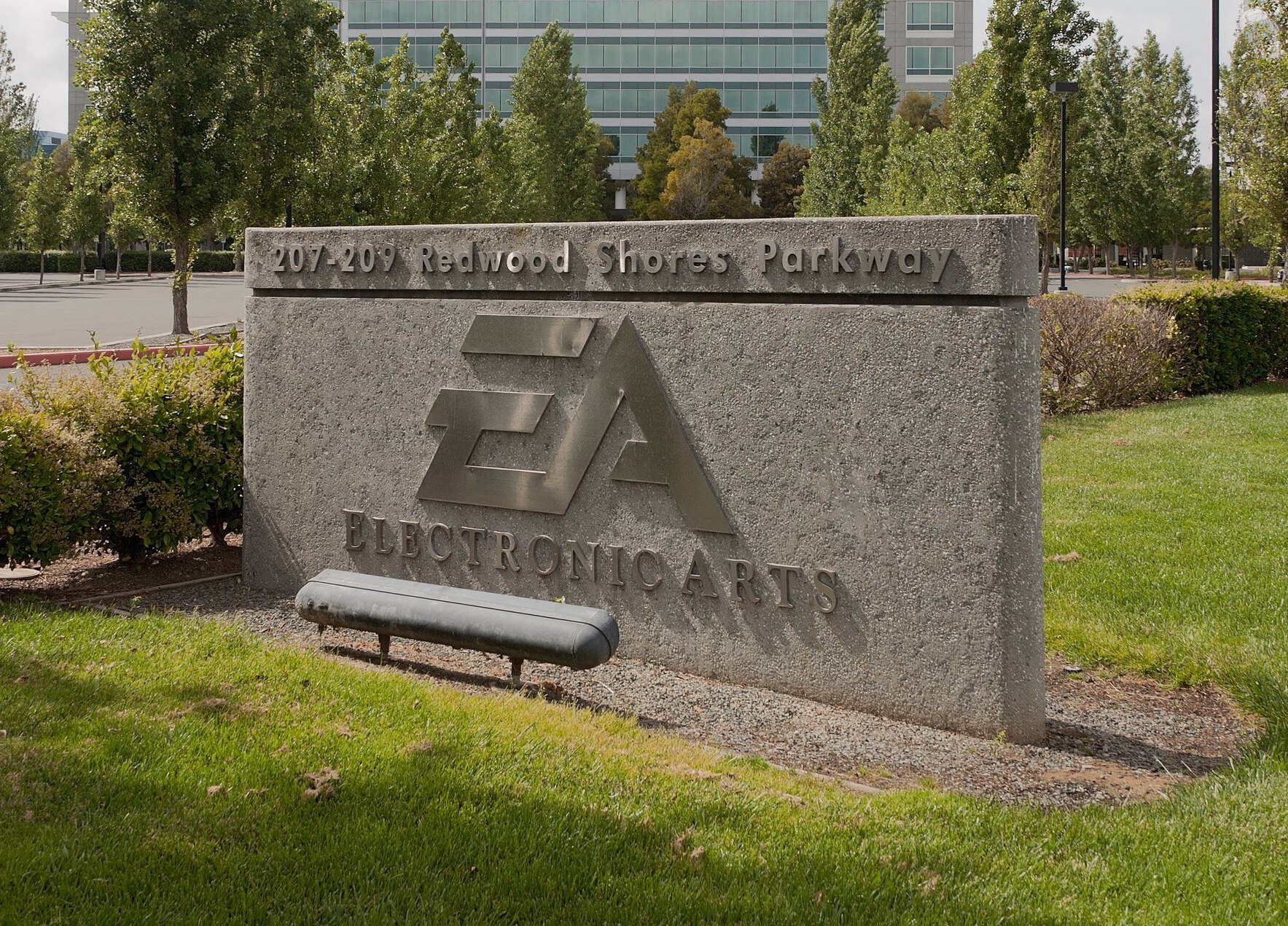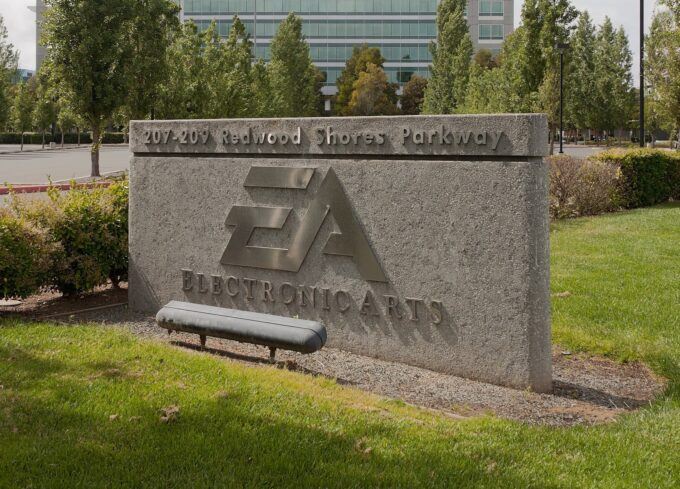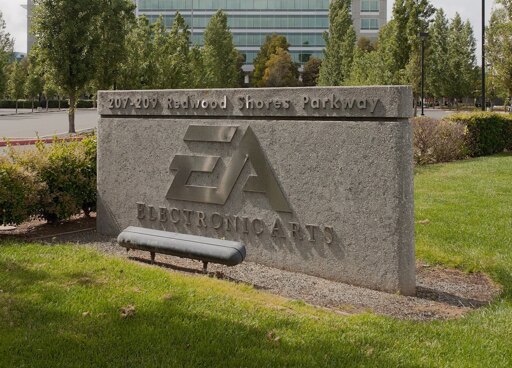

Photograph Source: King of Hearts – CC BY-SA 3.0
I was excited to play Battlefield 6, the long-awaited update to Electronic Arts’ (EA) most popular military shooter series, this weekend after its launch on Friday. Following the disaster that was Battlefield 2042, this new iteration is promised to be “a return to form” with dedicated servers, destructible environments, and a campaign that might actually justify the $70 price tag.
Then Saudi Arabia and Jared Kushner bought EA, the very publisher behind the Battlefield franchise.
The whopping $55 billion acquisition announced on September 29 marks the largest leveraged buyout in history, bringing together a peculiar consortium of financial entities: Saudi Arabia’s Public Investment Fund (PIF), the kingdom’s $925 billion sovereign wealth fund with direct ties to Crown Prince Mohammed bin Salman; Silver Lake Partners, a large private equity firm in the technology space that is also involved in the ongoing TikTok negotiations; and Affinity Partners, the investment fund that is run by key Trump confidant and son-in-law Jared Kushner.
The EA acquisition is the latest example of how US oligarchs like Jared Kushner are selling out domestic infrastructure for personal profit, using Saudi capital as their vehicle. We see the full playbook through EA: private equity’s debt-fueled financial engineering destroys jobs and creative capacity while elites like Kushner use their political pull to circumvent security reviews by the Committee on Foreign Investment in the US (CFIUS), collecting millions in fees in the process. This represents not just financial extraction from the gaming industry, but a broader pattern of connected elites circumventing oversight mechanisms designed to protect workers and consumers.
Gaming Under Private Equity Pressure
Unlike standard acquisitions where a business purchases another company outright, leveraged buyouts are fueled by extreme levels of debt and require the acquired company’s cash flow to service the acquisition debt. This means the leveraged buyout model prioritizes short-term returns on investment to meet debt obligations at the expense of long-term growth. Leveraged buyouts are the cornerstone of private equity’s financial engineering playbook, designed to extract maximum value while transferring all of the financial risk onto the acquired company and its workforce.
The financial structure of EA’s acquisition reveals these predatory mechanics at their largest scale to date. The consortium will contribute approximately $36 billion in equity while saddling EA with $20 billion in debt financing from JPMorgan. That is more than two and a half times EA’s revenue in 2025. “The reality is that in order to service debt of this magnitude, resources need to be freed up elsewhere,” analyst Michael Futter explained following the EA buyout announcement. Futter adds “that likely means layoffs, studio closures, and [selling] of IP.” This means fewer innovative titles and more aggressive monetization schemes.
The state of gaming is already not in a great place. Since 2022, an estimated 35,000+ jobs have been lost in the industry. As many gamers are aware, EA is no stranger to cuts. In February 2024, EA eliminated 670 positions across marketing, live services, and research and development. By May 2025, EA closed Ridgeline Games and scrapped the planned Star Wars and Titanfall installments. In January 2025, EA restructured BioWare, laying off over 100 staff members and shrinking the studio behind the wildly popular Mass Effect and Dragon Age series to fewer than 100 employees.
Immediately after the EA deal became public, rumblings of BioWare’s future began to surface since the studio represents exactly the type of “underperforming” asset that private equity firms systematically eliminate to meet debt obligations — regardless of the studio’s significance or the careers destroyed in the process. BioWare veteran Mark Darrah warned that EA may now be “looking to sell off some of its biggest IPs and studios in order to service that debt.” He explained that “It’s incredibly unlikely that EA stays exactly as it currently is in a private structure, especially carrying $20 billion worth of debt.”
The Role of AI
Mass layoffs and studio closures at EA are likely to accelerate with the increasing use of AI in the game development process. A Google Cloud survey revealed that 87 percent of game developers already leverage AI agents to automate “tedious and repetitive” tasks such as asset resizing, texture generation, and code refactoring. That same survey found that 44 percent of developers use AI for content optimization, which was once performed by dedicated teams of artists, writers, and testers. These AI systems range from procedural terrain and level generators to dialogue engines that script non-player character interactions without human writers.
Generative AI also threatens to automate concept art, voice acting, and storyline development, quality assurance testing, and customer support. When Activision Blizzard approved internal use of generative AI platforms like Midjourney and Stable Diffusion for concept art in 2023, mass layoffs immediately followed. “A lot of 2D artists were laid off,” reported an anonymous Activision artist. They added that “the department was slashed. Remaining concept artists were then forced to use AI to assist in their work.” This is a cross industry problem. A director at an unnamed game art outsourcing company revealed that his firm laid off half of its concept artists over one month in early 2023, stating that “concept artists using AI can complete plans with an efficiency increase of at least 50 percent. The decreasing demand from clients was quickly consumed. The company will not keep idle workers.” The 87 percent of developers who expect AI to reduce long-term development costs are essentially forecasting their own obsolescence. In the case of EA’s massive debt load, AI is an irresistible opportunity to slash labor costs while maintaining output.
For gamers, layoffs and greater use of AI means the slow death of creativity and innovation in favor of exploitative monetization tactics and sequential releases. The $20 billion debt obligation looming over EA’s head will push the publisher to pursue “safe” sequels of established intellectual property rather than taking risks to develop groundbreaking new experiences. Now, it should be noted that EA is not the industry’s leading risk taker or innovator – some of their most popular titles include annually released series and live service games like EA FC (formerly known as FIFA), Madden NFL, NBA Live, and Apex Legends. However, those developer studios under EA that do push boundaries – like DICE with Mirror’s Edge and BioWare with Mass Effect – will face elimination or forced conformity to financial extraction models. Former PlayStation executive Shawn Layden warned of a “collapse of creativity” in modern gaming, attributing it to “studio consolidation and the rising costs of production” that have decreased publishers’ risk tolerance. As he explained, “If we’re just going to rely on the blockbusters to get us through, I think that’s a death sentence.”
The removal of the tender love and care that goes into creating some of the best games fits into the broader industry shift to live service titles that come jam-packed with in-game microtransactions. According to IGN, only 16 percent of the total gaming market revenue comes from traditional game sales, with microtransactions making up the remaining 84 percent**.** Microtransactions, by the way of battle passes, loot boxes, and in-game store purchases, are already controversial elements of EA’s business model and secured the publisher nominations for the “worst company in America” in 2012 and 2013. Public backlash over a decade ago did not stop EA’s increasingly aggressive monetization practices, so they will likely intensify their microtransaction revenue streams to service the new debt.
The battle pass model is likely to be the primary monetization mechanism EA employs. It is an infamously ingenious monetization scheme that weaponizes player psychology to maximize spending through recurring purchases with each new season. Battle passes rely on manufacturing artificial scarcity by releasing limitedly available seasonal content like character, weapon skins, and emotes. This puts players in the position where they may feel compelled to purchase that content or lose the opportunity to own it forever, essentially punishing gamers “for not buying into their system.” That establishes the end goal of a whole player base who provide recurring revenue through in-game purchases and battle pass subscriptions instead of simply purchasing the game outright, which was the industry standard until Fortnite popularized the battle pass model in 2018. Most battle passes include a free tier that, in my experience, is designed to constantly remind players of the premium rewards they are forgoing by not purchasing the battle pass for that season. The logic makes sense for private equity. They did not acquire EA to sell more games, they acquired a platform already primed for extracting recurring revenue from hundreds of millions of players.
Kushner Cronyism
While the EA acquisition will have tangible impacts on the publisher’s employees, gamers, and those working in the gaming industry, the deal represents a broader pattern where US political elites facilitate foreign capital’s capture of domestic industries in exchange for personal enrichment. At the center of this arrangement stands Jared Kushner, whose private equity firm Affinity Partners serves as the crucial intermediary between the Saudi PIF and US corporate assets.
Six months after leaving the White House after the first Trump term, Kushner secured a $2 billion investment from the PIF, despite objections from the fund’s own advisers. A panel that screens investments for the Saudi sovereign wealth fund cited concerns including “the inexperience of the Affinity Fund management,” the possibility that Saudi Arabia would be responsible for “the bulk of the investment and risk,” Affinity’s operations were found to be “unsatisfactory in all aspects,” and “public relations risks” from Kushner’s prior role as a senior adviser to Trump. But days later, the full board led by Crown Prince Mohammed bin Salman overruled the panel and approved the investment.
The terms reveal the arrangement’s true nature. In return for the $2 billion investment, the PIF receives at least a 28 percent stake in Kushner’s main investment vehicle. On a $2 billion investment, Saudi Arabia pays Affinity Partners $25 million annually in asset management fees, not including a share of any profits. This structure provides Kushner with guaranteed income regardless of investment performance. Since 2021, Affinity Partners has collected at least $112 million in fees from Saudi Arabia and other international investors but has yet to yield any profits for the governments that fund the firm. Following a 2024 Senate investigation into Affinity Partners, Sen. Ron Wyden (D-OR) concluded that Affinity Partners “may not be motivated by commercial considerations, but rather by the opportunity for foreign governments to pay members of the Trump family.”
Beyond the details of Affinity Partners’ and the PIF’s relationship, the EA acquisition demonstrates how Kushner monetizes his political connections. According to sources familiar with the matter, Kushner “brokered the initial connection between the Redwood, California-based video game maker and Saudi Arabia’s Public Investment Fund, and for months acted as a central figure in the talks.” Although details of EA’s ownership distribution under the consortium have not been finalized, many outlets are reporting that Affinity Partners will retain only 5 percent equity in EA while the PIF and Silverlake Associates will hold majority and minority stakes, respectively.
So if Affinity Partners gets such a small piece of the pie, why are they so central to negotiations? That is because “people close to the discussions said Kushner’s involvement would… ease the deal’s path through the CFIUS, which adjudicates on deals involving foreign buyers.” The CFIUS (Committee on Foreign Investment in the United States) exists specifically to review foreign acquisitions of US companies for national security risks. The EA acquisition should trigger mandatory CFIUS review under multiple legal criteria. Federal law mandates that transactions involving foreign governments acquiring a 25 percent or greater voting interest in a US business that collects sensitive personal data on more than 1 million individuals require CFIUS declaration. Given that EA collects and maintains sensitive personal data on a massive scale, and the PIF will acquire a stake exceeding 25 percent, the acquisition clearly meets mandatory review thresholds.
However, the CFIUS review of the EA acquisition is unlikely to result in meaningful oversight due to the political reality. Kushner’s involvement essentially forestalls any adverse federal regulation of the deal. As cronyism has become more commonplace at the highest levels of US government, many doubt that the “CFIUS would or could pursue any action to mitigate risks or block the acquisition by President Trump’s son-in-law.” Essentially, Kushner provides Saudi Arabia with political cover and regulatory protection in exchange for guaranteed fees.
This corruption lies in stark contrast to the ongoing treatment of TikTok, which exposes the selective application of “national security” concerns when it serves the financial interests of US oligarchs. Silver Lake, a key partner in the EA consortium, is simultaneously backing the TikTok US purchase alongside Oracle and Abu Dhabi’s MGX investment fund. Yet while lawmakers have spent years citing“national security” and “data privacy” concerns to ban TikTok, Saudi Arabia’s PIF faces none of the same pushback despite representing far greater surveillance risks. The double standard is even more glaring when taking into account the actual data collection capabilities. While TikTok primarily collected social media usage patterns and demographic information, EA games access device-level information, network configurations, personal communications through in-game chat systems, and financial data through in-game purchases.
Trump’s executive order supporting the TikTok deal explicitly stated that the Chinese company ByteDance would hold less than 20 percent of TikTok following the closure of the deal, with the remainder controlled by US investors including Oracle and Silver Lake. Yet in the EA acquisition, the PIF will hold a majority stake while Kushner’s Affinity Partners provides political cover through a minimal 5 percent equity position. The same “national security” apparatus that demanded Chinese divestiture from TikTok remains silent on the PIF’s control of EA’s far more invasive data collection systems.
The EA deal is revealing. Oligarchs’s concern for national security threats, as in the case of TikTok, should be scrutinized when considering how destabilizing their own actions have been for workers, industries, and the broader economy. When foreign investment threatens their business models, the national security apparatus mobilizes with legislative bans and forced divestitures. But when those same elites profit from foreign capital acquiring domestic firms, as with EA, that apparatus falls silent. The message is unmistakable: National security concerns are invoked selectively to serve financial interests, not to protect citizens from economic harm.
What makes the EA deal particularly insidious is how it weaponizes the gaming industry’s existing vulnerabilities. Private equity targets EA precisely because the publisher already operates exploitative monetization systems and has normalized mass layoffs across its studios. The $20 billion debt burden will only accelerate these existing trends and further cement EA as one of the most hated companies in the country. Meanwhile, Kushner collects millions in fees for providing political access that circumvents the oversight mechanisms designed to prevent exactly this type of transaction. The EA acquisition is not an isolated deal, but rather a template for how connected elites will continue selling American industries to foreign powers while extracting personal profit — leaving workers and consumers as casualties of their financial engineering.
This first appeared on CERP.
The post Private Equity’s EA Takeover: Corruption, Contradictions and Exploitation appeared first on CounterPunch.org.
From CounterPunch.org via this RSS feed


